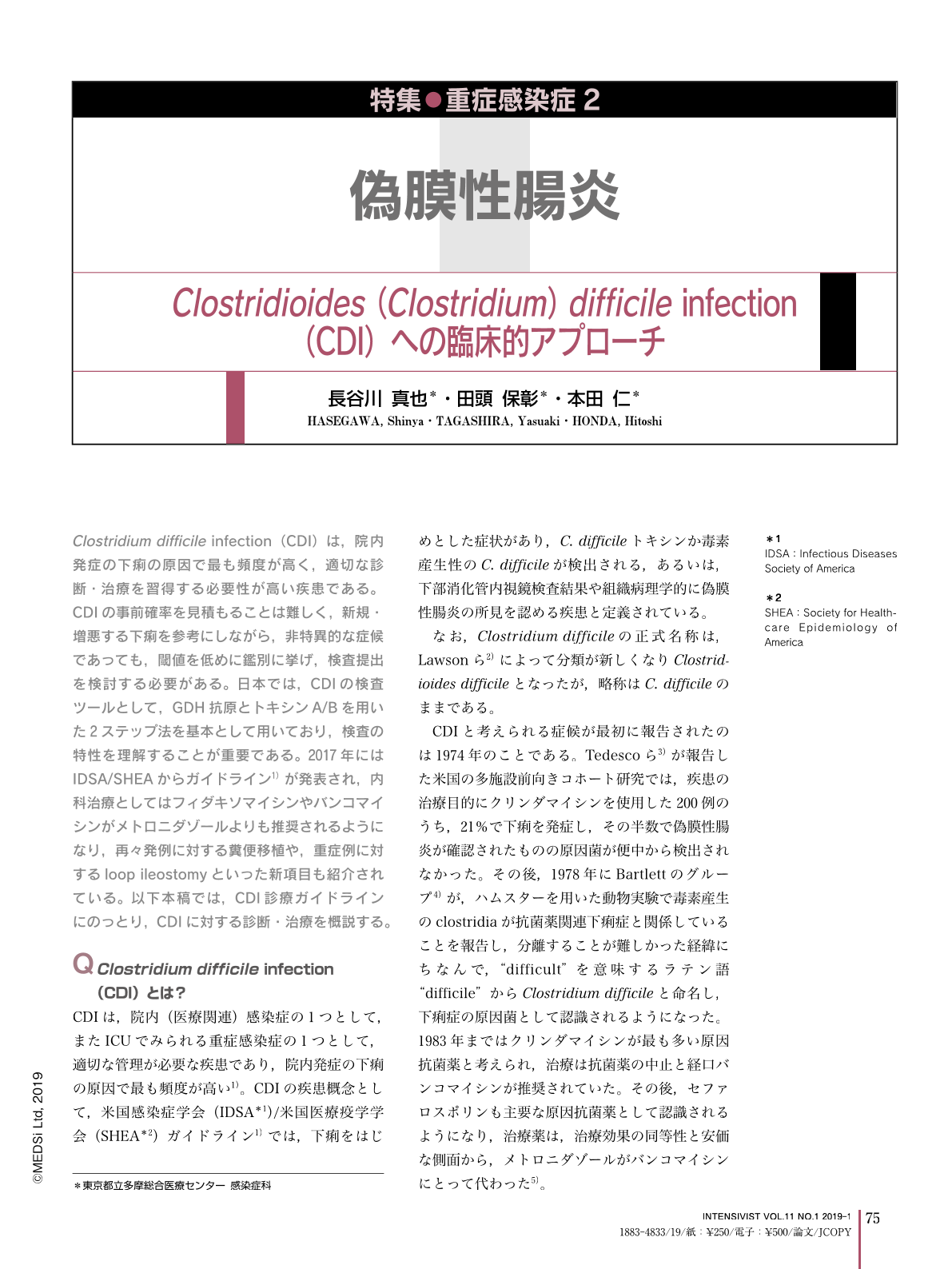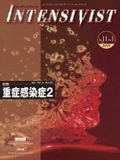Japanese
English
- 有料閲覧
- Abstract 文献概要
- 1ページ目 Look Inside
- 参考文献 Reference
Clostridium difficile infection(CDI)は,院内発症の下痢の原因で最も頻度が高く,適切な診断・治療を習得する必要性が高い疾患である。CDIの事前確率を見積もることは難しく,新規・増悪する下痢を参考にしながら,非特異的な症候であっても,閾値を低めに鑑別に挙げ,検査提出を検討する必要がある。日本では,CDIの検査ツールとして,GDH抗原とトキシンA/Bを用いた2ステップ法を基本として用いており,検査の特性を理解することが重要である。2017年にはIDSA/SHEAからガイドライン1)が発表され,内科治療としてはフィダキソマイシンやバンコマイシンがメトロニダゾールよりも推奨されるようになり,再々発例に対する糞便移植や,重症例に対するloop ileostomyといった新項目も紹介されている。以下本稿では,CDI診療ガイドラインにのっとり,CDIに対する診断・治療を概説する。
Clostridioides difficile infections (CDI) are the most common cause of infectious diarrhea in healthcare settings. CDI is always considered in patients receiving antimicrobials, who develop new-onset or worsening diarrhea. Although a two-step algorithm of stool tests using a glutamate dehydrogenase immunoassay and toxin enzyme immunoassay are commonly used, diagnosing CDI is challenging because of the lack of a gold standard for diagnosis. Clinicians should understand that the diagnosis of CDI relies on a high index of clinical suspicion, including the presence of symptoms and predisposing factors, and laboratory confirmation of C. difficile toxin in the stool. A recent guideline published by the Infectious Diseases Society of America reviews comprehensive treatment strategies including the choice of antimicrobials for CDI treatment, the indication for fecal microbiota transplantation in recurrent/relapsing CDI, and the role of surgical therapy in patients with severe CDI.

Copyright © 2019, MEDICAL SCIENCES INTERNATIONAL, LTD. All rights reserved.


